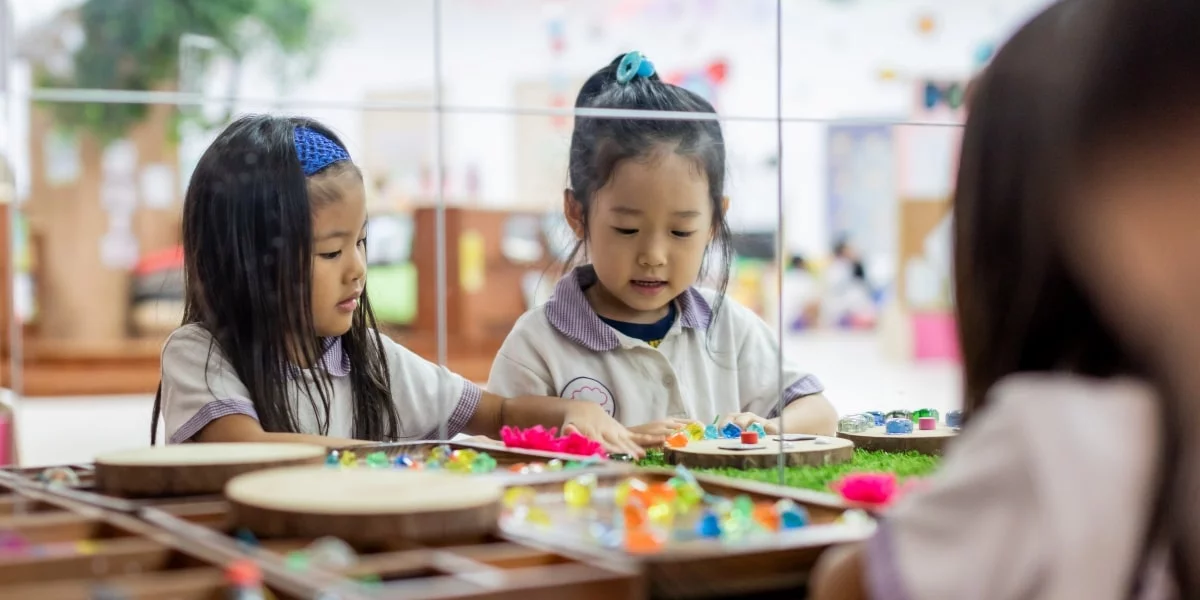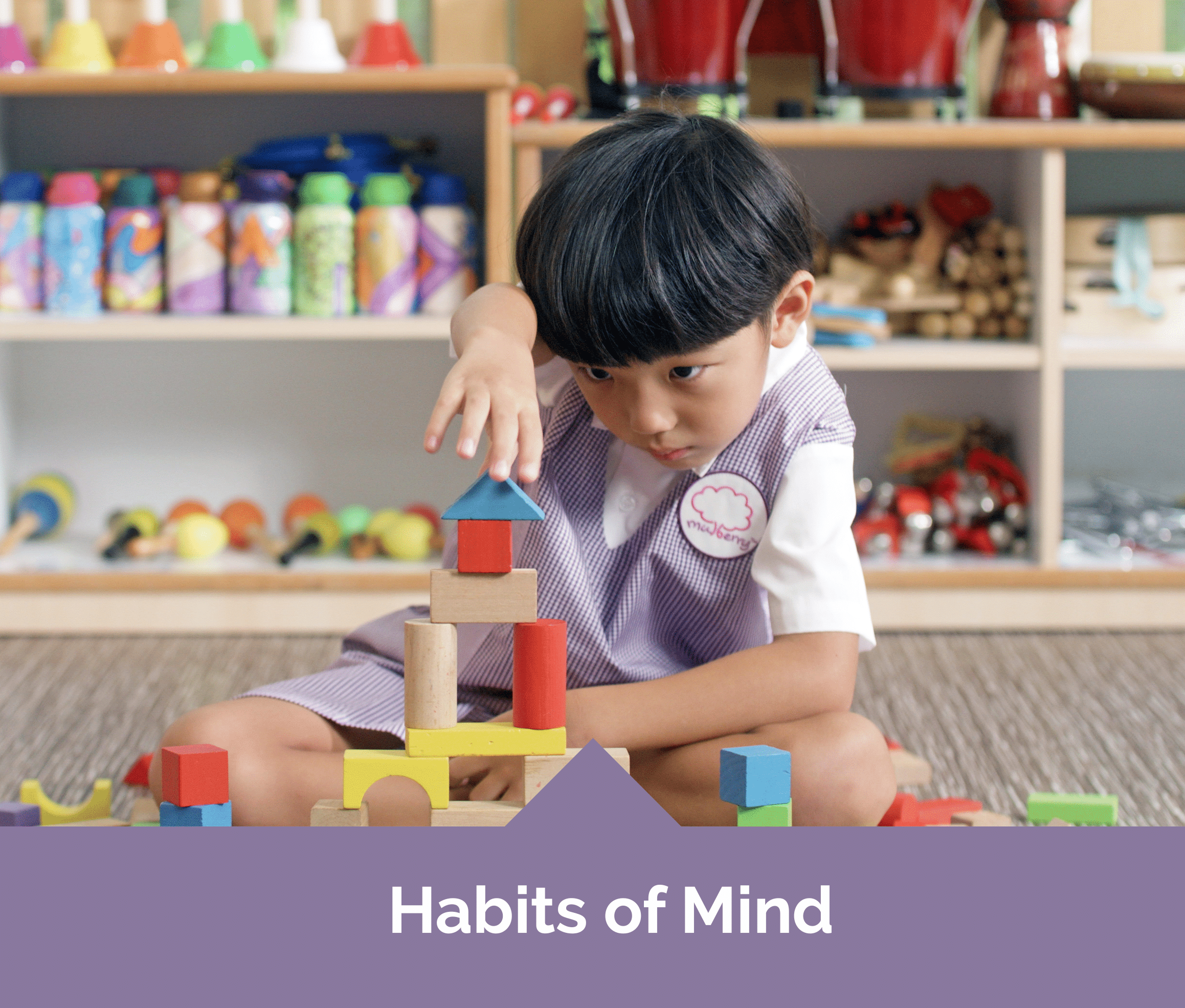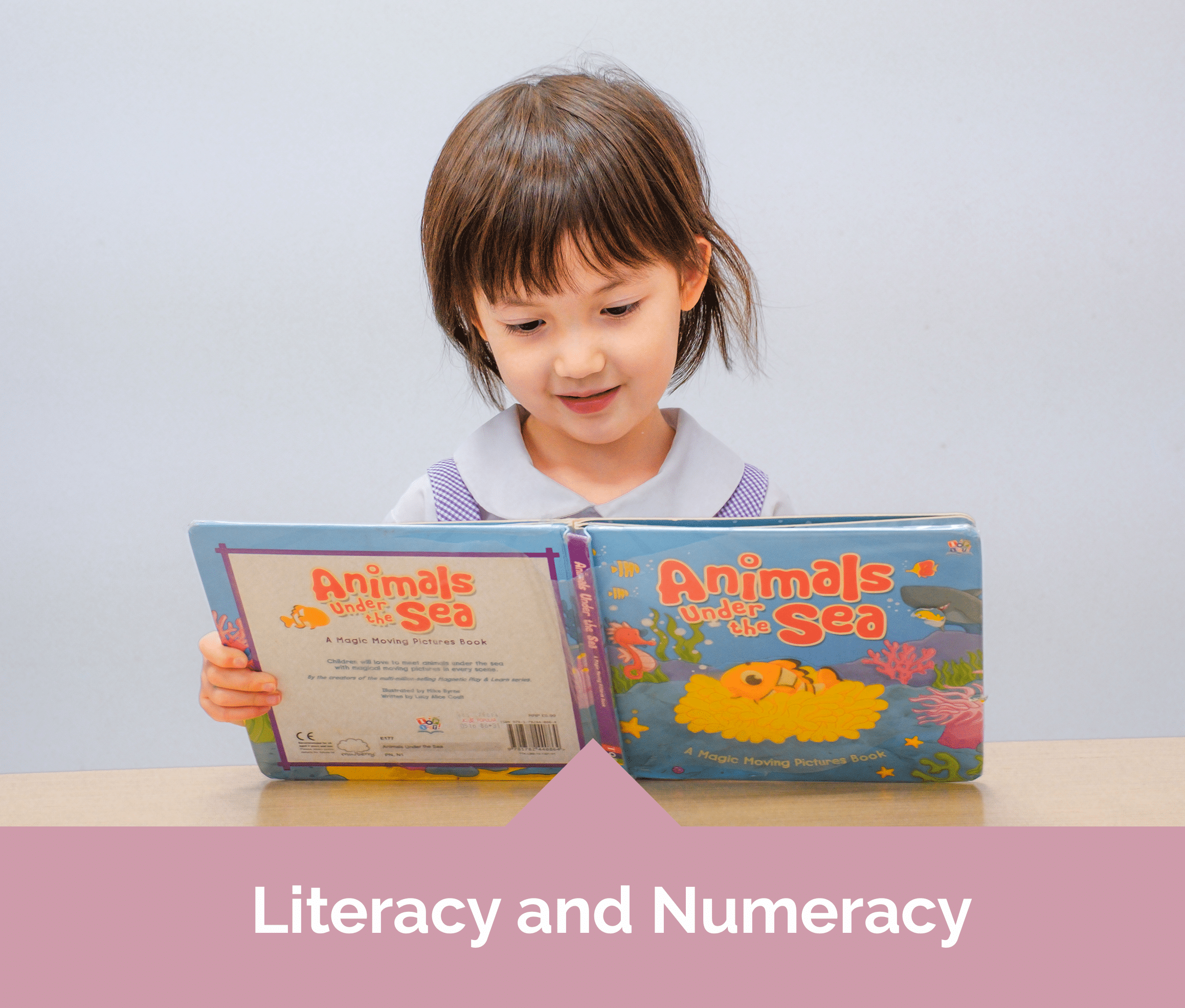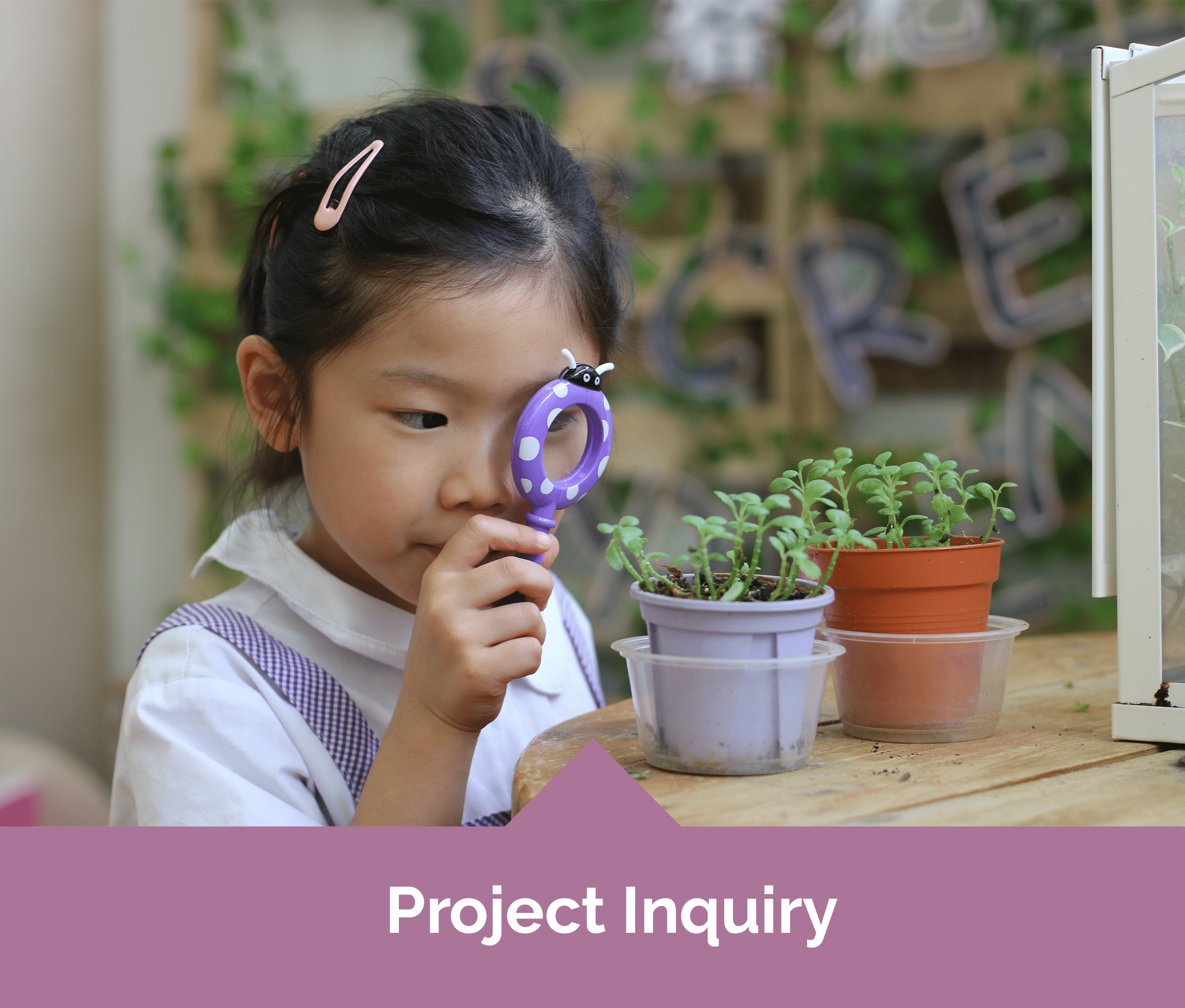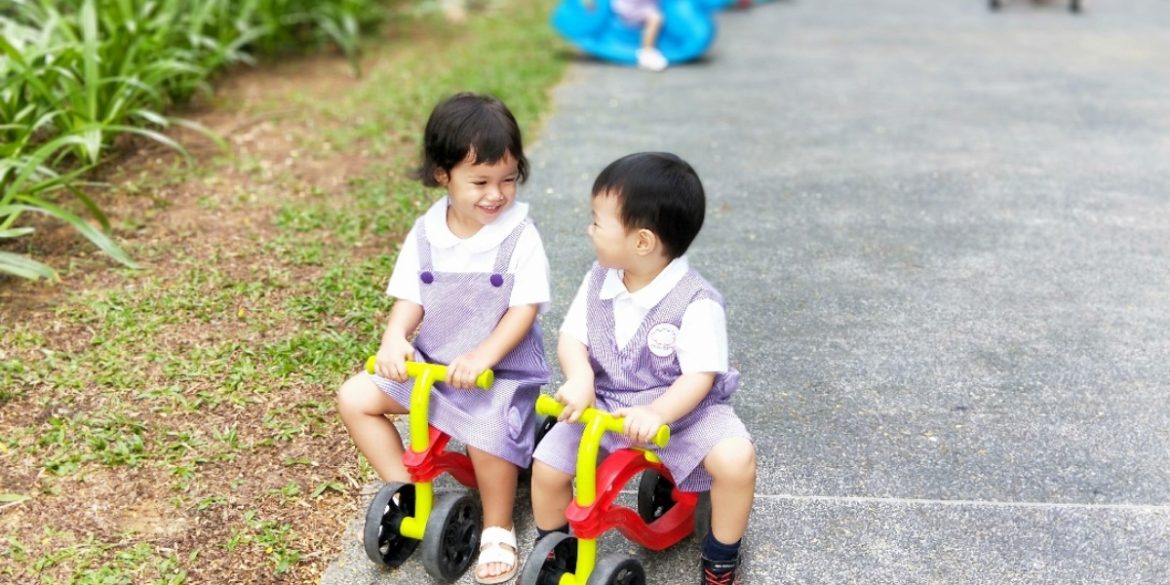
Your home is bursting with toys, from building blocks to toy trains, yet whenever a friend’s child comes over, your little one wants that once neglected toy the other kid reaches for. Your child whines and shows an unwillingness to share, and the supposedly fun play date turns into a tragic disaster of tears and tantrums!
Does this situation sound familiar? Have you wondered if it is normal that your child finds it difficult to share even when there is an abundance of toys?
The good news is that struggling with the concept of sharing is a natural part of a child’s development. Yet, sharing is a crucial social skill for children that helps kids succeed socially, personally, emotionally, and even academically.
Why Is Sharing Important For Children?
Why Won’t My Child Share?
Children take time to learn the concept of sharing. In the first two years of a child’s life they will need to first develop a sense of self. You’ll hear things like, “Ma ma mine” or see them point to an object and then to themselves. This is an important developmental stage as toddlers are trying to detach themselves from their parents and discover their self-identity.
After that, they may start to form attachment to things around them, like a blanket, pillow, or stuffed toy. Sometimes, children may also perceive these items as part of themselves. Can you imagine asking them to share that ragged teddy bear they drag everywhere they go? You’ll find that it will be more difficult for them to share these items but remember that it is a process!
A child only starts developing empathy, the ability to see things from the perspectives of others, and the concept of sharing when he or she approaches the age of three. To help speed up the process or to encourage them to share, read on to learn the tips!
Tips for Teaching Children to Share!
1. Start Young
Even before your child starts to grasp the idea of sharing, you can always provide opportunities to share. Perhaps, asking your child to give you one bite of the cookie he or she is having every now and then or practise turn-taking by passing their favourite toys back and forth saying, “now it is my turn, then it is your turn.”
2. Give Compliments
Children learn best through praises and encouragements. Compliments should also be descriptive of the behaviour and specific. Instead of saying, “Wow, you’re such a good boy,” try “Did you see the smile on Colin’s face when you shared your truck with him?” This helps your little one make connections between his or her behaviour with the compliment.
3. Role Model How to Share
Parents are children’s first teachers and they watch, listen and observe you all the time! It is important for them to witness you giving and taking, compromising and sharing with others. Vocalise actions of sharing whenever your child is watching to show and point out to them that you are sharing. For instance, you can say, “Mummy is sharing my apple with daddy, do you want to share your apple with daddy too?”
Use the word “share” often and vocalise what you are doing. Let your child know that they can also share a feeling, a story, or an idea aside from material things.
4. Teach Them to Ask for Permission
As children learn about sharing, they also simultaneously learn about having ownership of items and should be taught to ask others for permission. Instead of snatching the toy away, they need to ask for permission, “can I borrow your toy car to play?”. Role-model that when you wish to get them to share their items with you and you’ll find that they will start correcting you and their friends for not asking for permission.
This is extremely crucial for the safety of children as well. They need to learn that people need to ask for permission before they hold their hands, hug them, or carry them.
5. Get Children to Think
Instead of telling children that they should share, you could instead question and get them to think in the perspectives of others. You can ask them, “What if your friends refuse to share their toys with you?” Whether they feel upset or angry, recognise their feelings and share with your child that their friends will probably feel the same way when he or she doesn’t share with them too.
6. Pre-empt your Child In Situations Where There Will be Sharing
A playdate or a meeting with their cousins where they’ll need to share? Let them know in advance to mentally prepare them for the situation. “Daddy’s friend and his children are coming over tonight to play with you. Do you think you can share your toys with them?” By telling them what is going to happen, they’ll not be caught by surprise when someone takes one of their toys temporarily.
7. Allow Your Child to Not Share In Some Cases
As you encourage your child to share, it is important for them to also learn times where they should not share. Children should also have the option of saying no. There may be more personal things like that important blanket or teddy bear that they have formed strong attachments to which are difficult for them to share.
Just as how you would prepare them for situations that require sharing, allow them room to not share in some cases. For instance, you could say, “Your cousins are coming over later on. I know you don’t like Hazel to play with your red fire truck, would you like to keep it somewhere and share other toys with her instead?” Children should be able to say “no” in situations they feel uncomfortable.
All in all, the road to teaching children to share is a long process; it is a marathon and not a sprint. It will take time, sometimes they may get frustrated and fail to share, but through lots of encouragement, role modelling, and patience, your child is set for the road to success!
Learn Good Habits Through Habits of MindTM!
At Mulberry Learning, we have specially curated 12 habits that are mindfully infused into our curriculum, utilising teachable moments and daily routines to teach children positive behaviours such as sharing! While the Habits of MindTM framework has long been adopted by Singapore’s Ministry of Education to groom the top 1% of students under its Gifted Education Programme, Mulberry Learning is the first and only preschool network globally certified by the Institute for Habits of MindTM.
Our Signature Programmes
Exclusive Promotion
Book a virtual tour with Mulberry Learning to find out how we can guide your little ones to cultivate good lifelong habits! Explore our beautifully crafted Reggio-inspired learning spaces from the comfort of your own home with our Virtual School Tours!



